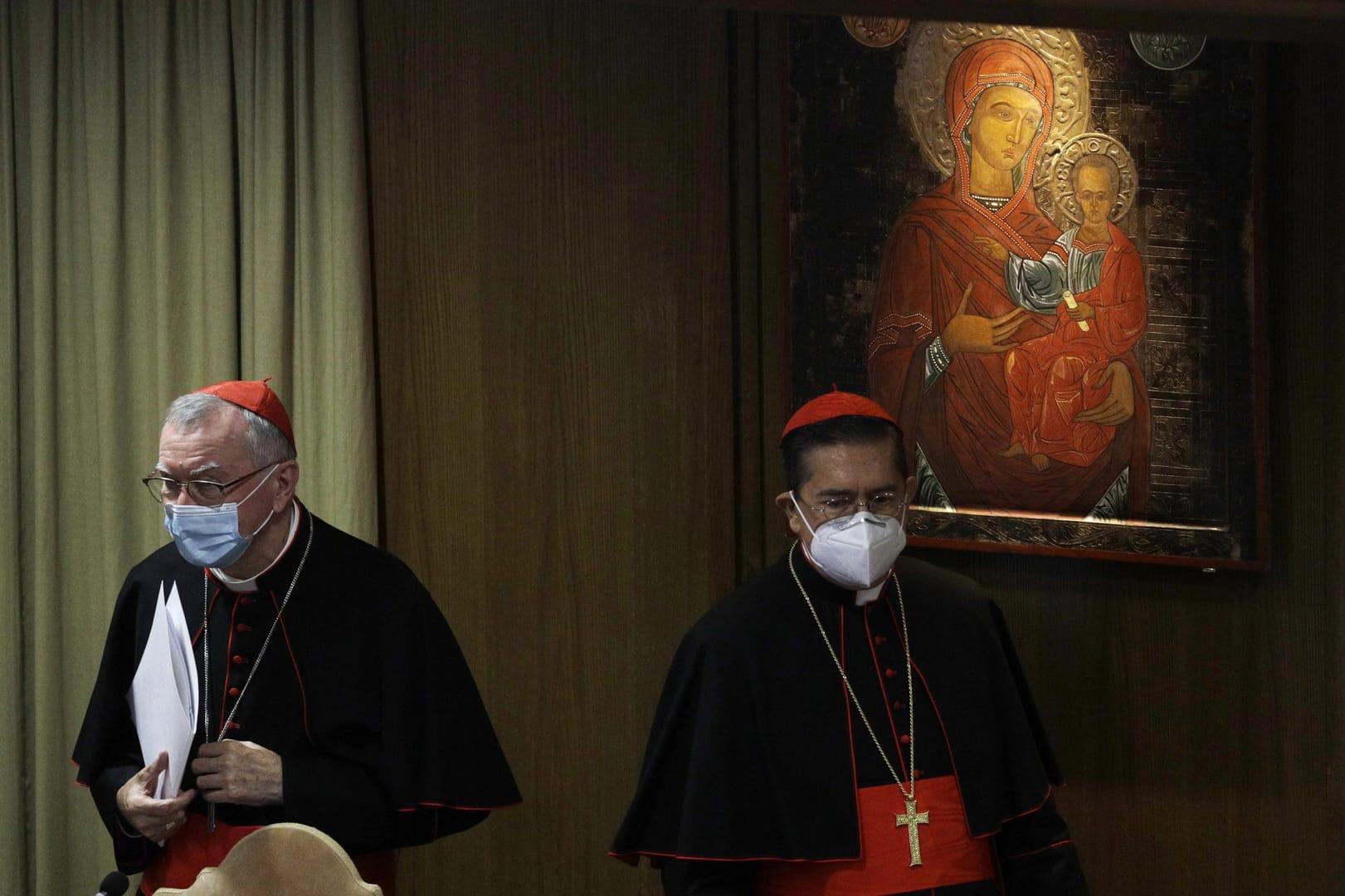As leaders from ten different religious traditions “gathered” through Zoom at an interfaith forum hosted in Saudi Arabia, Pope Francis’s latest document on human fraternity had a central place in the discussions.
“We must put human dignity back at the center and on that pillar build the alternative social structures we need,” said Miguel Ángel Moratinos, High Representative for the United Nations Alliance of Civilizations, directly quoting from Fratelli Tutti, the papal encyclical released Oct. 4.
His words came during a high-level summit called the G20 Interfaith Forum ahead of the meeting of the G20 leaders in Riyadh next month, where government leaders from 19 countries and the European Union will gather to discuss international economic cooperation.
The Oct. 13-17 interfaith forum was organized online due to the COVID0-19 pandemic.
The line-up of the seventh edition of the forum included Cardinal Miguel Ángel Ayuso Guixot, President of the Vatican’s Council for Interreligious Dialogue; Patriarch Bartholomew of Constantinople; representatives from the United Nations, the International Dialogue Centre (KAICIID), the Organization of Islamic Cooperation, the World Muslim League, and the European Commission.
KAICIID was founded by Saudi Arabia, Spain and Austria with the Holy See as a Founding Observer Member. It is an effort on behalf of the Islamic world to reach out to other faiths in pursuit of transnational, intercultural, and interreligious dialogue.
“The story of this G20 Interfaith Forum does not begin tonight and end in five days’ time however,” said KAICIID Secretary General Faisal bin Muaammar. “The story began in July, with the first consultation between religious leaders, faith-based experts and policy makers in the Arab Region.”
After this first stage, there were consultations that brought together 500 participants, representing 10 faith traditions in 70 countries on five continents.
The chairman of the G20 religious forum explained that the “Road to Riyadh” has wound its way through Asia, North America, Latin America, Europe and the Middle East in a series of unprecedented consultations on some of the most pressing challenges in the field of human development.
This process took place despite the challenges of the COVID-19 pandemic, including a wonky internet connection at the beginning of Tuesday’s meeting. Regardless, “these consultations have not lacked passion, urgency or direction,” said bin Muaammar.
“We have heard powerful testimony on themes being considered by this Forum – on the effects of climate change, gender inequality, economic imbalance and poor governance,” he said.
The kingdom of Saudi Arabia has a “historical responsibility” ahead of the G20 summit, and the interfaith forum must prepare the stage adequately, he argued, providing a series of recommendations.
“Of course,” Moratinos said, the issues of gender inequality and climate change will be addressed by the leaders of the G20 countries, including the United States, Russia, China, India, South Africa, Mexico, France, Italy, Germany, Japan and Australia. But the “essential” recommendation religious leaders can give political ones, he continued, are on ethics and spirituality, both needed today, when the world is in crisis.
Long before the UN was born, Moratinos acknowledged, different faiths embraced the notion of equal rights for all human beings: “In that sense, it came as no surprise that since the pandemic, we have witnessed how faith-based organizations and their leaders have embodied the principle of leaving no one behind and fighting for social justice, contributing to mobilizing resources and support the hardest to reach.”
“Faith actors have a track record of being on the frontlines when crises hit home,” he said. “In a life-altering crisis, when people are desperate and uprooted from their lives, faith has often been their anchor and the place they turn to for consolation and hope.”
Again quoting the pontiff, Moratinos said that the time for “parallel monologues” is over, and the time has come for a “constructive and sustainable dialogue.”
The critical situation of the world – due to the new coronavirus, the impact of the lockdown on mental health and economies, the rising poverty, unemployment and inequality, are among the things listed by several panelists – implores religious leaders to come together, and this was the core message of the opening session.
In the words of Sheikh Abdallah Bin Bayyah, President of the Forum for Promoting Peace in Muslim Societies: “Religion is a great power that can be a bridge. I would love to see religious leaders act as fire brigades to put out fires and save people’s lives wherever they are; they don’t ask ‘how did this fire break out?’ but ‘how can we put it out and prevent it?’”
During his remarks, Ayuso argued that believers of different religious traditions can offer valuable contributions to universal fraternity wherever they are. Quoting the pope, he said that the voices of the powerful and “experts” shouldn’t be the only ones heard in public debate.
“Room needs to be made for reflections born of religious traditions that are the repository of centuries of experience and wisdom,” the cardinal said.
To address the “very dark moment” humanity is going through, Ayuso said, adequate solutions are needed to address the problems of “our existential life,” with the human family coming together in a spirit of friendship, proposing answers to common problems.
Religious leaders in particular, he said, need to be a “contagion of hope.”
“Let us then witness to our religious communities as well as to our societies in which we live: Unity, solidarity and fraternity, for bettering our ‘common home,’ as Pope Francis is continuously reminding us all,” Ayuso said. “This is our public responsibility be it political, socio-economical or religious.”
In order to find an adequate “therapy” to end the world crisis and to prevent a new one in the future, it’s necessary to answer Pope Francis’s call to “reaffirm that we are members of the one human family.”
Follow Inés San Martín on Twitter: @inesanma














